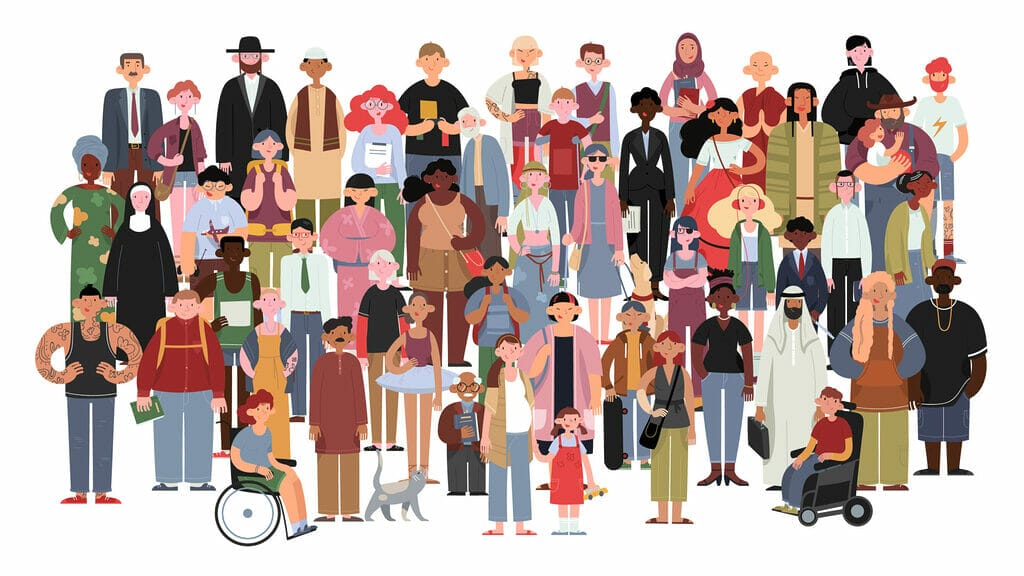By Marsten Anderson The Alycia Anderson Company Staff

In today’s rapidly evolving world, the importance of diversity, equity, and inclusion (DEI) cannot be overstated. As we strive for a more inclusive society, where everyone has opportunities to find their version of success, contentment, and purpose in life, it is crucial to recognize, acknowledge and address the unique challenges faced by individuals living with disabilities. Disability awareness plays such a pivotal role in this because it fosters the environment that embraces our diversities and opens our minds to the solutions that work for all of us. In this blog, we will explore how you can actively contribute to creating a more inclusive world by raising your disability awareness and embracing the advancements in DEI.
Understanding Disability:
In the last year the global population of people living with disabilities has risen from 15% to 16%, and in the United States 1-in-4 Americans are living with a disability.
Disability is a broad term encompassing physical, sensory, cognitive, and mental health capabilities that may affect a person’s full participation in society. It is essential to recognize that disability is not a limitation but a characteristic that adds to the rich tapestry of the human experience.
By understanding and appreciating the unique diversities and perspectives of individuals with disabilities, we can create a more inclusive and equitable society.
The Importance of DEI and Disability Awareness:
Traditionally, DEI initiatives have aimed to create an environment where people of different races, ethnicities, religions, genders, and sexual orientations feel valued, respected, and included whether at work, in education or by society as a whole.
Disability or a person’s abilities have, until recently, been generally and commonly left out of the equation or have been failed to be mentioned at all in these conversations.
Yet, by the sheer nature of this conversation along with a rising voice of disabled advocates and the ability of DEI leaders to adapt, shift and re-apply the core fundamentals of this cause, disability has not only begun to be included in this conversation, but is being lifted-up as common ground that can challenge us to push forward the DEI conversation.
Increasing disability awareness encourages empathy, understanding, and creates a shift in mindset towards inclusivity by helping break down barriers, challenging stereotypes, and promoting equal opportunities for all.
Benefits of Disability-Inclusive Practices:
- Enhanced Innovation: Embracing disability diversity fosters innovation by bringing together individuals with different perspectives and problem-solving approaches. By including individuals with disabilities in decision-making processes, organizations can tap into a wealth of unique insights and experiences.
- Improved Employee Engagement: When employees feel valued and included, their engagement and productivity increase. By creating an inclusive workplace that accommodates and supports individuals with disabilities, organizations can foster a sense of belonging and loyalty among their workforce.
- Expanded Customer Base: By considering the needs and preferences of individuals with disabilities, businesses can tap into a significant consumer market. Accessibility and inclusivity in products, services, and customer experiences not only benefit individuals with disabilities but also attract a broader customer base.
Promoting Disability Awareness:
- Education and Training: Organizations should provide comprehensive training programs to raise awareness about disabilities, debunk myths, and promote inclusive practices. This training should be accessible to all employees and cover topics such as disability etiquette, reasonable accommodations, and unconscious biases.
- Accessibility: Ensuring physical and digital accessibility is crucial for creating an inclusive environment. Organizations should strive to make their facilities, websites, and communication channels accessible to individuals with disabilities. This includes providing assistive technologies, captioning, and alternative formats for information.
- Collaboration and Partnerships: Engaging with disability advocacy groups and organizations can provide valuable insights and guidance on creating inclusive policies and practices. Collaborating with these groups can help organizations identify and address barriers that may exist within their structures.
Pushing Forward the Mantra of Progress over Perfection in Disability Awareness:
Embracing diversity, equity, and inclusion requires a conscious effort to raise disability awareness and create an inclusive society. By recognizing the complex, varying, and unique challenges faced by individuals with disabilities and actively working towards removing barriers, we can foster a more equitable and accessible world for all of us.
With National Disability Employment Awareness Month (NDEAM) approaching in October, let us commit to promoting disability awareness, challenging stereotypes, and creating environments where everyone can thrive. Together, we can build a society that celebrates and embraces the diversity of all its members.